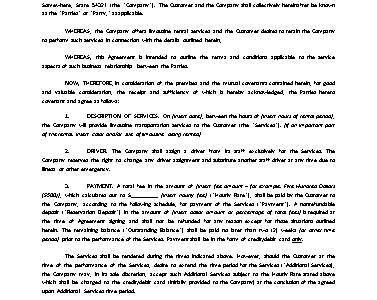Insurance Companies Lexington KY sell life, property and liability coverage as well as specialized coverages such as workers’ compensation. They may be mutual or proprietary companies.

Look for a company that has agents who are familiar with different products and services. You’ll want them to understand your goals and help you select the right policies.
Insurance companies are entities that create insurance products to take on risk in exchange for premium payments. They may be mutual (owned by policyholders) or proprietary (owned by shareholders). They are tightly regulated and backed by the government to ensure they have sufficient financial resources to cover claims.
In modern times, insurance buyers are increasingly sophisticated and expect a superior customer experience (CX). They have more options than ever before, which can make it challenging for insurers to meet their needs. This has created a need for insurers to become nimbler, work faster, and make CX their top priority.
To achieve these goals, many insurance companies are focusing on digital transformation and omnichannel strategies, which can reduce costs by automating processes and improving efficiency. In addition, they are leveraging open data platforms and customer-centric analytics to understand their customers’ values and behaviors and provide personalized experiences.
Some large insurance companies have global reach and are an excellent option for businesses with locations around the world, or individuals who own property internationally. They also have a reputation for reliable service and timely claim payment.
As a career, insurance can be lucrative for those with the right mindset and drive. However, income can be highly variable because your success is based on the number of policies you sell. A great insurance agent works hard to stay up to date on the latest market trends and makes an effort to gain loyal clients. They also understand that they must be flexible with their schedule in order to meet client needs.
Cons
Insurance companies are highly regulated businesses which can sometimes limit growth opportunities. They are required to meet financial solvency standards and provide regular financial disclosures. They also face significant losses from natural disasters, large-scale accidents, and other unpredictable and black swan events. These events can lead to a decrease in profits and force insurers to cut dividends or even close their doors. Insurance companies are often structured as either stock companies with outside shareholders or mutual companies where policyholders own the company.
Insurance agents have direct relationships with insurance companies they represent, which can be helpful in resolving policy-related issues. However, this can limit their options when recommending coverage for clients as they may not offer products from other carriers.
An insurance agency is a business that sells and administers insurance policies in exchange for a fee or commission. It can be an independent agency, which offers a variety of policies from many different insurers or a captive agent, which only sells the products of one carrier. An independent agent can help clients find the best coverage for their needs, while a captive agent can only recommend the products offered by his or her employer.
Advantages
Insurance companies provide a vital service to individuals and businesses by taking on the financial risk associated with specific activities or events. This allows the policyholder to reduce their risk and avoid the consequences of economic losses that can be difficult to recover from.
The transfer of risk is crucial because it allows individuals to protect themselves from economic hardships that may arise from unexpected circumstances such as natural disasters, accidents, and health issues. In addition, it can help protect businesses from bankruptcy if they suffer significant economic losses that could be beyond their capacity to repay loans or credit.
As an industry, insurance offers a variety of products and services for almost any need that individuals or businesses might have. Some examples include life, property and casualty, and health insurance. In addition, many insurance companies are involved in philanthropic initiatives to help communities and individuals in need. This helps to create a sense of community and enhances employee satisfaction and retention.
A career in the insurance industry can be a highly rewarding experience. Insurance companies offer a dynamic work environment where employees must constantly be thinking strategically and solving problems in order to meet the needs of their clients. This type of career also provides job security as it is less susceptible to changes in the economy and recessions.
Another advantage of working in the insurance industry is the opportunity to be creative and develop new solutions for unique situations. This can be especially appealing to young professionals who want a challenging and exciting career. In addition, a career in the insurance industry can lead to a high salary, as well as a variety of benefits, including medical and dental coverage.
Insurance companies generate revenue by collecting premiums from their policyholders. These premiums are pooled together to create a fund from which the insurance company will reimburse claims when necessary. This pooling of resources allows the insurance company to offer competitive rates and to cover a wide range of risks. Insurance companies can be structured either as stock companies with outside investors or as mutual insurance companies where policyholders are the owners.
Some insurance companies also use reinsurance to reduce their exposure. This practice helps them maintain a strong credit rating and a stable profit margin. It also helps them to reduce the amount of money they have to pay out in claims.
Investors who buy stock in an insurance company can benefit from a steady source of income that is generated by the premiums that policyholders pay. These dividends can help to increase the value of an investment and provide a good return on their initial capital. In addition, insurance companies are often regulated by state and federal laws which can protect investors and ensure ethical business practices.
